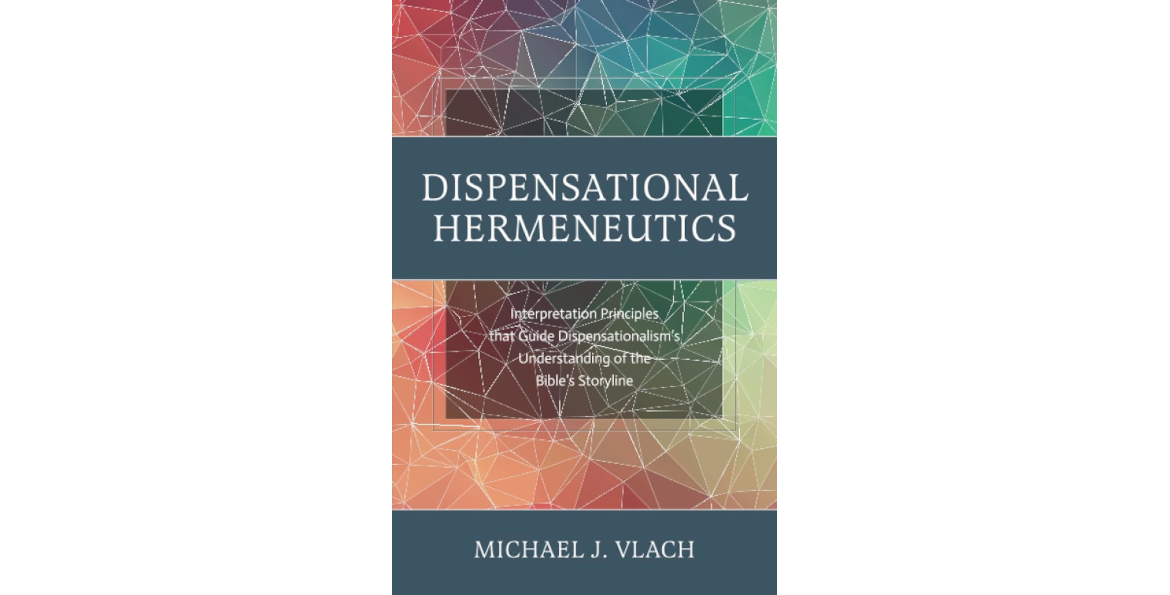A difficult book to review. There are three primary aspects from which to consider this book: its presentation of the Dispensational hermeneutic, its defense of the Dispensational hermeneutic, and its presentation & critique of other approaches.
Regarding the first, this book is invaluable. Here in a concise volume is a straightforward statement of the principles guiding the typical Dispensationalists’ reading of Scripture. While not every Dispensationalist will agree with everything Vlach has to say, those who fall into the camps of Traditional (Classical/Revised) or Progressive Dispensationalism will find broad agreement with Vlach’s presentation. And the student or researcher will find here an excellent source for interacting with or learning more about the principles of those positions.
As far as Vlach’s defense of this hermeneutic, the book is lacking. It may not be fair to critique him on this; he doesn’t claim to offer a defense of these principles. But it is quite strange to read a book which not only gives a positive presentation of the Dispensational hermeneutic but also critiques non-Dispensational hermeneutics and yet does so only by assuming the Dispensational position as an a priori. Which is to say Vlach’s critiques are only reassertions of his own position. The historic position of the Church has been to see our hermeneutic as derived from Scripture; therefore we can appeal to the Scripture itself to argue for or against a specific hermeneutical position. Indeed, this position is suggested by Scripture itself in 2 Tim 3:16-17. Vlach, however, never addresses the question of where his hermeneutic comes from, he simply assumes its validity.
Finally, Vlach’s presentation and critique of alternate hermeneutics leaves much to be desired. Throughout the book he uses other positions as a foil to the Dispensational approach, often quoting those he disagrees with to show how his position is distinct. But he continually offers straw-man understandings of those he is quoting. For instance, when explaining the “consistent use of grammatical-historical hermeneutics to all of Scripture” (p23) and specifically how that applies to symbols, types, and analogies, Vlach quotes Samuel Waldron who promotes the use of symbolic interpretation; Vlach contends that another interpretive approach is unnecessary since the grammatical-historical is able to encompass symbolism (pp27-28). But in context, Waldron’s disagreement with Vlach appears to be that interpretation of symbolic passages cannot properly be labeled grammatical-historical – “isn’t it obvious that we have to interpret different kinds of literature differently? . . . While it seems clear that Vlach and MacArthur are admitting the reality of different kinds of literature, they also seem to say this reality should make no difference in the way we interpret such passages.” (Waldron, MacArthur’s Millennial Manifesto, p76) Vlach presents an overly simplified (and ultimately inaccurate) version of Waldron’s hermenutic and then disagrees with that. To be sure, there is a very real interpretive difference at play here. And Vlach ought to have taken this opportunity to explain how Waldron misunderstood the Dispensational approach (if he in fact did) and show the true nature of their disagreement. Disappointingly, Vlach chose to focus merely on the labels used rather than the actual substance and the reader is left non-the-wiser as to who is misunderstanding whom.
Elsewhere, he charges non-Dispensationalists with “storyline change” (pp 95ff). He offers many quotes from those arguing the New Testament interpretative method of the Old Testament ought to be our interpretative method, charging that they advocate for a “shift in reality” (p95). And his quotations often have the appearance of showing exactly that. While I cannot claim that every one of the quotations he uses is misrepresented, for someone familiar with the Reformed hermeneutical approach, it is immediately obvious that the Reformed authors he quotes are arguing that the OT was misunderstood and that the NT corrects those misunderstandings, and not that the NT alters the OT itself or changes its storyline. In short, the disagreement at this point is “how did God intend the OT to be understood”, not “does the NT change the OT.” His misuse of statements from the Reformed position then casts doubt on Vlach’s use of the hermeneutical statements of other positions.
These shortcomings are significant. There is much value in this book if you are trying to understand the Dispensational hermeneutic. But for comparing that hermeneutic to other approaches or for defending that hermeneutic, this book largely fails.
